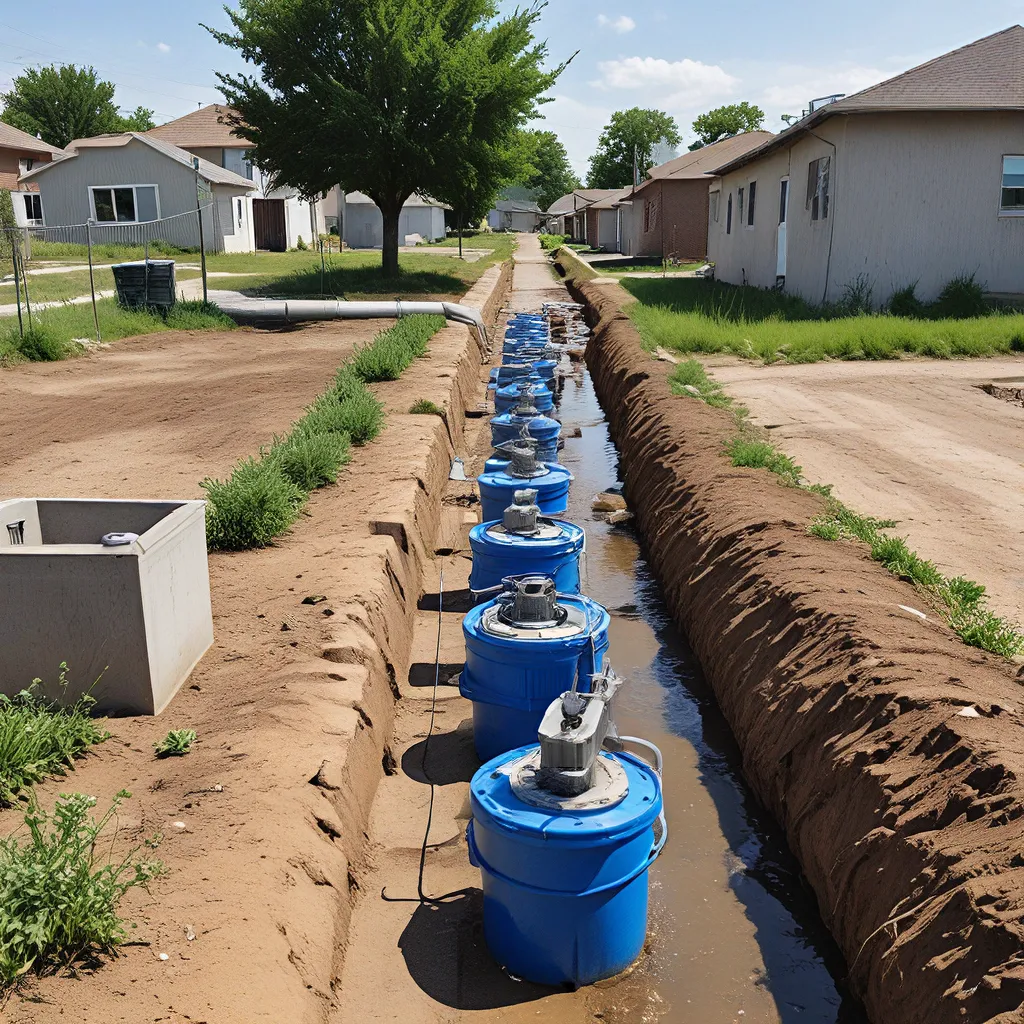
The Rise of Decentralized Solutions
As our communities continue to grow and evolve, the need for efficient and sustainable wastewater management has become increasingly crucial. Centralized wastewater treatment systems, while effective in many urban areas, have faced challenges in addressing the unique needs of rural and suburban communities. This is where decentralized wastewater systems have emerged as a game-changing solution, revolutionizing the way we approach wastewater management.
I’ve always been fascinated by the intricate workings of our infrastructure, and as I delved into the world of wastewater treatment, I couldn’t help but be amazed by the ingenious approaches that are now available. Decentralized systems, in particular, have piqued my interest, as they offer a more tailored and responsive approach to addressing the diverse needs of different communities.
Redefining Wastewater Management
Traditionally, wastewater treatment has been dominated by large, centralized facilities that collect and process sewage from entire towns or cities. While these systems have served us well, they often struggle to keep up with the rapid growth and changing demands of modern communities. Imagine a small rural town, for example, where a centralized system would require extensive and costly infrastructure to reach every household. This is where decentralized solutions shine, providing an efficient and adaptable alternative.
Decentralized wastewater systems are designed to treat and manage wastewater at the source, often at the individual property or community level. These systems can range from simple septic tanks to more advanced technologies that incorporate water reuse, nutrient recovery, and energy generation. By treating wastewater close to where it’s generated, decentralized systems can reduce the need for extensive piping and centralized treatment facilities, making them a more cost-effective and environmentally friendly option for many communities.
Unlocking Efficiency and Sustainability
One of the key advantages of decentralized wastewater systems is their ability to adapt to the unique needs of each community. Unlike a one-size-fits-all centralized approach, decentralized systems can be tailored to the specific population, geography, and resource constraints of a particular area. This flexibility allows for innovative solutions that prioritize efficiency, sustainability, and resource conservation.
ISO standards have played a crucial role in guiding the development and implementation of decentralized wastewater systems. These standards address the design, management, and safety considerations of water reuse systems, ensuring that communities can implement reliable and effective solutions. By following these guidelines, municipalities and developers can be confident in the long-term performance and environmental impact of their decentralized wastewater systems.
Empowering Rural and Suburban Communities
Perhaps one of the most compelling aspects of decentralized wastewater systems is their ability to revitalize rural and suburban areas. In these communities, where centralized infrastructure can be costly and difficult to maintain, decentralized solutions offer a practical and sustainable alternative. Decentralized systems can help bring economic development, environmental stewardship, and improved quality of life to underserved regions, empowering residents to take control of their own wastewater management.
As I’ve learned more about these systems, I’ve been particularly intrigued by the potential for water reuse and nutrient recovery. By treating wastewater on-site, decentralized systems can capture valuable resources like water and nutrients, which can then be repurposed for irrigation, groundwater recharge, or even agricultural applications. This circular approach to wastewater management not only reduces the strain on our natural resources but also contributes to a more sustainable and resilient future.
Overcoming Challenges and Embracing Innovation
Of course, the transition to decentralized wastewater systems is not without its challenges. Regulatory frameworks, for example, may need to evolve to accommodate these more localized and innovative approaches. Additionally, public perception and education around the benefits of decentralized systems will be crucial in driving widespread adoption.
However, I’m encouraged by the ongoing research and development in this field. Experts are constantly exploring new technologies, refining design principles, and addressing potential barriers to implementation. International standards organizations are also working to provide guidance and support for communities looking to embrace decentralized wastewater solutions.
Toward a Sustainable Future
As I reflect on the potential of decentralized wastewater systems, I can’t help but feel a sense of excitement and optimism. These innovative approaches are not only improving the efficiency and sustainability of our wastewater management, but they’re also empowering communities to take control of their own environmental stewardship. Whether it’s a rural town or a suburban neighborhood, decentralized solutions are revolutionizing the way we think about water and waste.
Of course, the journey ahead is not without its challenges, but I believe that by embracing innovation, collaboration, and a shared commitment to sustainability, we can unlock the full potential of decentralized wastewater systems. And who knows, maybe one day, our communities will be entirely self-sufficient when it comes to managing their own waste and water resources. The possibilities are truly exciting, and I can’t wait to see where this path leads us.
In the meantime, I encourage you to explore the services and solutions offered by Alpha Wastewater, a leading provider of decentralized wastewater treatment systems. Their expertise and commitment to sustainable practices could be the key to unlocking a more efficient and eco-friendly future for your community.